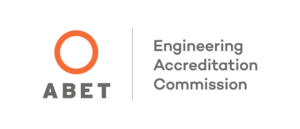 The Civil Engineering undergraduate degree program is accredited by the Engineering Accreditation Commission of ABET, under the General Criteria and the Civil Engineering Program Criteria.
The Civil Engineering undergraduate degree program is accredited by the Engineering Accreditation Commission of ABET, under the General Criteria and the Civil Engineering Program Criteria.
Per ABET policy, the Program Educational Objectives, Student Outcomes, and Undergraduate Enrollment and Graduation Data are publicly provided below.
Program Educational Objectives
Consistent with the mission of the Department of Civil and Environmental Engineering at the University of Tennessee, graduates of this program are expected to attain the following objectives:
- Solve engineering problems and contribute to successful projects, with increasing technical and leadership responsibility.
- Adapt to rapid changes in societal needs and engineering technology by leveraging existing and emerging engineering knowledge.
- Exercise creative and resourceful critical thinking skills and an attitude of professional confidence.
- Continually increase engineering proficiency, pursue graduate or other advanced education and professional licensure, and contribute to the profession and community with integrity.
Student Learning Outcomes
In support of the the above objectives, at the time of graduation Civil Engineering students will have achieved and demonstrated the following outcomes:
- an ability to identify, formulate, and solve complex engineering problems by applying principles of engineering, science, and mathematics.
- an ability to apply engineering design to produce solutions that meet specified needs with consideration of public health, safety, and welfare, as well as global, cultural, social, environmental, and economic factors.
- an ability to communicate effectively with a range of audiences.
- an ability to recognize ethical and professional responsibilities in engineering situations and make informed judgments, which must consider the impact of engineering solutions in global, economic, environmental, and societal contexts.
- an ability to function effectively on a team whose members together provide leadership, create a collaborative and inclusive environment, establish goals, plan tasks, and meet objectives.
- an ability to develop and conduct appropriate experimentation, analyze and interpret data, and use engineering judgment to draw conclusions.
- an ability to acquire and apply new knowledge as needed, using appropriate learning strategies.
Civil Engineering Undergraduate Enrollment and Graduation
| Year | Fall Enrollment | Degrees Awarded |
|---|---|---|
| 2023-2024 | 414 | |
| 2022-2023 | 384 | 69 |
| 2021-2022 | 350 | 67 |
| 2020-2021 | 332 | 77 |
| 2019-2020 | 337 | 93 |
| 2018-2019 | 332 | 66 |
| 2017-2018 | 325 | 59 |
| 2016-2017 | 293 | 52 |
| 2015-2016 | 305 | 70 |
| 2014-2015 | 299 | 72 |
| 2013-2014 | 287 | 74 |